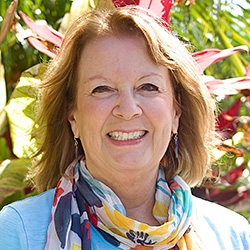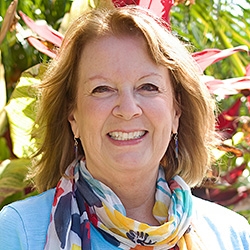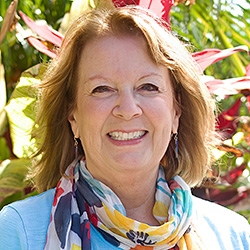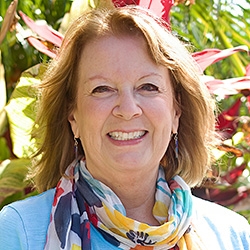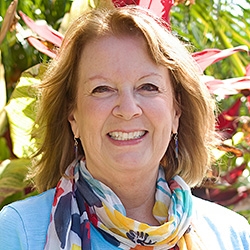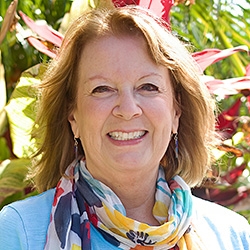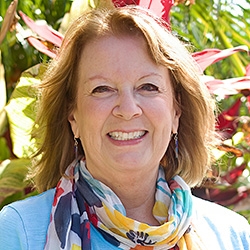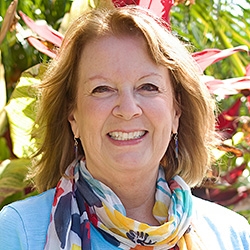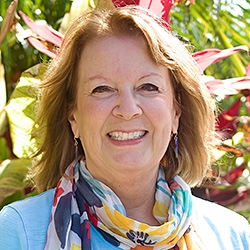
Search Results: listening
-
Discover how to transform your life by aligning your actions with what matters most to you. In David Weinstock's 4-session course, you'll learn essential skills like managing moods, making values-driven decisions, and building stronger relationships using NVC and somatic techniques. Whether you're new to NVC or an experienced practitioner, these simple yet powerful practices will help you bridge divides, release anxiety, and live with grounded compassion.
-
Mary Mackenzie, renowned CNVC Certified Trainer, shares her understanding and experience of empathy.
-
CNVC Certified Trainer Miki Kashtan talks with radio show host Hollis Polk about strategies for communicating with family members whose political views oppose our own.
-
Enjoy Dian's overview of the 4-step model and its application to the workplace. Learn how NVC can help you: generate intrinsic motivation… discover creative solutions… create greater accountability and buy-in…reinforce behaviors you like and change others… and experience a LOT more fun, joy and aliveness at work!
-
There are four components to the Nonviolent Communication (NVC) model, as developed by Marshall Rosenberg, PhD. The 4-Part NVC Process can guide you to express how you are, or they can be used to empathically receive how another is.
-
This holiday, shift your focus from what disappoints you to the true whisperings of your heart. Compassion is an inside-outside process. In this telecourse recording, you will experience four simple tools for savoring your own precious needs, allowing you to experience greater compassion and harmony this holiday.
-
Mary offers tips for developing effective tracking skills, including how the energy of the group is managed discerning the qualities of presence for each of the members, and monitoring group participation while striving for a balance of inclusion.
-
Mary continues her discussion of tracking skills, focusing on tracking requests, agreements with the group and tracking time. Mary also examines how to monitor the purpose of the session, discerning if and when to shift the agreement about the purpose for meeting. Mary closes with some final helpful tips to hone your tracking skills.
-
It seems to me that people see ideas which are different from theirs as threatening. Instead of listening, the group polarizes around the different ideas and a lot of judgments develop, conflicts develop and people feel hurt. Forward progress becomes a battle ground. How can I support more collaboration?
-
What do I do when I'm leading an NVC group and get emotionally triggered? Mary Mackenzie offers tips to respond with care and connection from her extensive experience leading NVC groups.
-
Developing our own teaching exercises is a powerful consciousness-building process that eventually helps us clarify our own way of learning and to develop our unique style of teaching.
-
Join CNVC Certified Trainer and Certified Focusing Teacher Shulamit Berlevtov in this brief exercise called the Wheel of Awareness. This exercise will help you become aware of how to distinguish and differentiate your life experience.
-
For many people thinking about creating a workshop outline is overwhelming because they focus on the whole thing at once. Breaking the process down to bite-size pieces eliminates much stress and overwhelm and brings fun and creativity to the process. here's your step-by-step guide!.
-
NVC groups can sometimes get caught in a rut and lose energy and momentum. Mary shares her extensive experience with seven steps for keeping your group engaged and energized.
-
Learn about the three stages of transition, and how staying connected to needs can help you remain oriented and grounded even through the most challenging transitions.
-
Ever wondered how to balance everyone’s needs when leading a NVC group? In the first part of the video, Mary shares tips how to balance the facilitator's, the individuals members' and the group's needs. In the second part, Mary talks about transparency as a facilitator - what does it mean, what does it look like and how to be transparent in a way that is supportive for the group.
-
Leading an Nonviolent Communication workshop is a good way to learn and practice NVC skills. Here are Shantigrabha and Gesine's seven top tips for facilitators.
-
Empathy guessing when I was new to NVC seemed magical and mysterious. How could that other person have known that about me? And seen inside me — often in ways I'd missed myself. While empathy is both intuitive and an art, there is also a science to it. In this brief yet fascinating introduction to Dian's course, Empathy Hacking, you'll learn a super-practical way to demystify empathy guessing by making use of the root meaning of words.
-
When someone expresses upset about our actions, and we focus on our intention being seen and understood (e.g. "I didn’t mean to hurt you”) it doesn't support the speaker in being heard more deeply with care. Here we'll explore this dynamic in a way that supports more clarity and the possibility of greater personal liberation. Read on for more.
-
We all know what it’s like to be on the end of feedback that we receive as clumsy, unbalanced or even spiteful. We don’t have any control over the skill level of people who give us feedback, or their motivations. So how do we receive feedback without taking it personally, in a way that we can learn from it?


